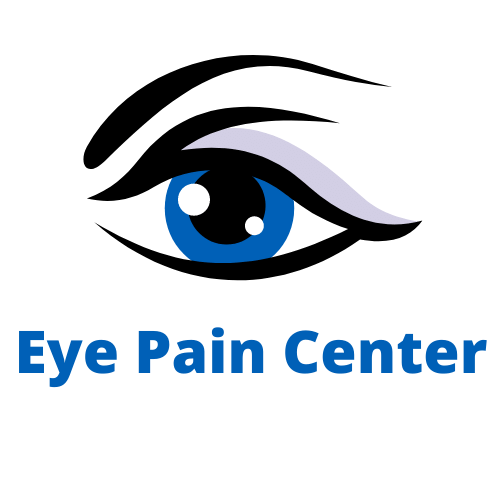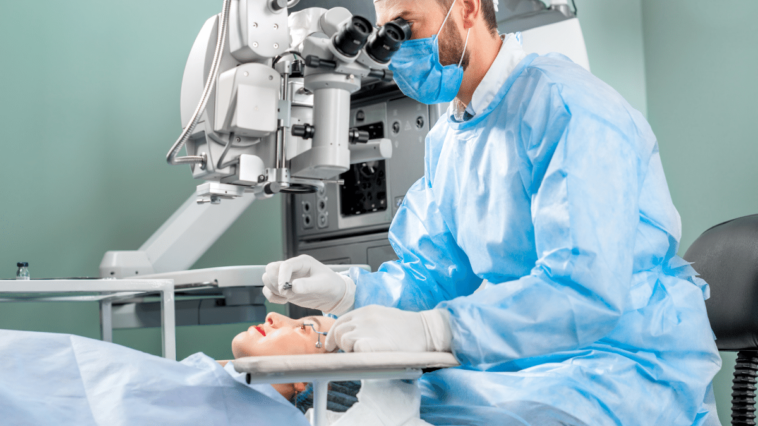What is an Eye Doctor?
An eye doctor is a medical doctor who specializes in diagnosing, treating, and preventing diseases and disorders of the eye and vision. They can prescribe glasses, contact lenses, and medications to treat various conditions.
Eye Doctors can perform corrective eye surgery, such as LASIK, which can improve vision and eliminate the need for eyeglasses or contact lenses. An eye doctor is trained to diagnose and treat vision problems, eye diseases, and other disorders related to the ocular system.
They also can provide advice on nutrition and lifestyle changes that can help improve vision and prevent further problems. Eye doctors are highly educated and trained professionals dedicated to providing quality eye care to patients.
Difference Between Optometrists, ophthalmologists, and opticians
Optometrists, ophthalmologists, and opticians are all professionals who work in the field of eye care, but they have different levels of training and responsibilities.
Optometrists are eye care professionals specializing in detecting vision problems and diagnosing, treating, and managing ocular conditions.
They can prescribe eyeglasses or contact lenses to help improve patient vision and also recommend exercises or lifestyle modifications to prevent further problems.
With an in-depth understanding of anatomy and physiology, they ensure a patient’s eyes stay healthy and function properly.
After completing a four-year optometry program at an accredited optometry school and passing a licensing exam, they can practice optometry and provide eye care services to the patient.
Ophthalmologists are medical professionals who specialize in the diagnosis and treatment of eye conditions.
They perform comprehensive exams to evaluate patients’ vision, test for any potential problems in their eyes, and diagnose and treat a variety of eye diseases, including glaucoma, cataracts, and macular degeneration.
Ophthalmologists can also prescribe corrective eyeglasses or contact lenses and perform surgery when necessary.
Opticians are trained eye care professionals who specialize in administering, fitting, and dispensing glasses and contact lenses according to prescriptions written by optometrists or ophthalmologists. They also know how to make adjustments or repairs on eyewear. Those wishing to become an Optician should plan on obtaining a two-year degree from a certified opticianry school and passing the licensing exam to practice.
In general, optometrists are primary care providers for vision and eye health. At the same time, ophthalmologists are medical doctors who specialize in diagnosing and treating more complex eye conditions and can perform surgery. Opticians are trained to dispense and fit eyewear but are not licensed to diagnose or treat eye conditions.
How To Choose An Eye Doctor?
Choosing an eye doctor is crucial because your eye health and vision are very important.
Some tips to help you make the right choice are the following:
- Specialization: Do you need an optometrist or an ophthalmologist? Optometrists are trained to diagnose and manage vision problems and eye diseases. At the same time, ophthalmologists are medical doctors who specialize in diagnosing and treating more complex eye conditions and can perform surgery.
- Insurance: Check with your insurance provider to see which eye doctors are covered under your plan.
- Location: Consider the location of the eye doctor’s office and whether it is convenient for you to visit.
- Recommendations: Ask your primary care doctor or friends and family for recommendations.
- Training and experience: Look for an eye doctor who has received proper training and has experience in the field.
- Communication style: Consider whether you feel comfortable talking to the eye doctor and whether they can explain things in a way you can understand.
- Research online: Read online reviews and look into the doctor’s credentials, services, and insurance coverage.
It’s a good idea to visit the eye doctor for a consultation before deciding. This will allow you to ask questions and get to know the doctor before committing to their care.
Determine Your Eye Insurance Coverage
To determine your insurance coverage for eye care, you can:
- Check your insurance plan: Review your insurance plan to see what types of eye care services are covered and what if any, copays or deductibles apply.
- Contact your insurance company: Call your insurance company and ask about your coverage for eye care services. Be sure to have your policy number and other relevant information handy when you call.
- Ask your eye doctor: Your eye doctor’s office should be able to help you understand your insurance coverage and any out-of-pocket costs you may be responsible for.
It’s important to note that insurance coverage for eye care can vary widely. You must check with your insurance provider before seeking treatment.
When To Choose an Ophthalmologist
You may want to choose an ophthalmologist if:
- You have a complex eye condition or disease: Ophthalmologists specialize in diagnosing and treating eye conditions and diseases. They are trained to diagnose and treat more complex eye conditions and can perform surgery to correct vision problems or to treat certain eye diseases.
- You need surgery: Ophthalmologists are trained to correct vision problems or treat certain eye conditions. If you need surgery, an ophthalmologist is the best choice for your care.
- You have a family history of eye conditions or diseases: If you have a family history of eye conditions or diseases, you may be at a higher risk for developing these conditions yourself. An ophthalmologist can help you manage your risk and monitor your eye health.
- Your primary care doctor recommends it: If your primary care doctor recommends that you see an ophthalmologist, it is a good idea to follow their recommendation.
When To Choose an Optometrist
You may want to choose an optometrist if:
- You need a routine eye exam: Optometrists are trained to perform routine eye exams and can prescribe glasses or contact lenses to correct vision problems.
- You have a minor eye condition: Optometrists can diagnose and manage many common eye conditions, such as dry eye, pink eye, and allergies.
- You need a new pair of eyeglasses or contact lenses: Optometrists can prescribe glasses or contact lenses and help you choose the best eyewear for your needs.
- You prefer a primary care approach to eye care: Optometrists can serve as primary care providers for your eye health and manage your overall eye care needs.
When To Choose an Optician
You may want to choose an optician if:
- You need eyeglasses or contact lenses: Opticians are trained to dispense and fit eyeglasses and contact lenses based on prescriptions written by optometrists or ophthalmologists.
- You need to have your eyewear adjusted or repaired: Opticians can adjust and repair eyewear to ensure a proper fit and comfortable wear.
- You need help choosing the proper eyewear: Opticians can help you select the best eyewear for your needs, considering your prescription, lifestyle, and personal style.
Common Ophthalmology Subspecialties
Some ophthalmologists choose to further specialize in a particular area of eye care, known as a subspecialty. Some common ophthalmology subspecialties include:
- Glaucoma: Ophthalmologists who specialize in glaucoma diagnose and treat this condition, which is characterized by damage to the optic nerve caused by increased pressure in the eye.
- Cataracts: Ophthalmologists who specialize in cataracts diagnose and treat this condition, which is characterized by a clouding of the lens of the eye.
- Retinal diseases: Ophthalmologists who specialize in retinal diseases diagnose and treat conditions such as age-related macular degeneration, retinal detachment, and diabetic retinopathy.
- Cornea and external diseases: Ophthalmologists who specialize in cornea and external diseases diagnose and treat conditions such as keratitis (inflammation of the cornea) and pterygium (an overgrowth of tissue on the cornea).
- Pediatric ophthalmology: Ophthalmologists who specialize in pediatric ophthalmology diagnose and treat eye conditions in children.
Ophthalmologists who choose to specialize in a particular area of eye care typically complete additional training and education in that area.





